How To Start a Moving Company: Complete Guide
A Closer Look At The Details of Starting a Moving Company

To learn more about our disclosure, visit our disclaimer statement as this post contains references to products where we earn from qualifying purchases if you use our referral links. This adds no extra cost to you.
Whether it’s individuals relocating for work or families moving to a new home, the need for reliable moving services is constant. With the right approach to how to start a moving company, business owners can quickly establish a successful moving business.
This resource guides you through the essential steps and considerations for starting a moving company, ensuring you’re well-prepared to enter the moving industry.
Why Start a Moving Company?
Starting a moving company offers a unique opportunity to tap into a high-demand industry. With people and businesses constantly on the move, the need for reliable moving services will always be there. This business offers significant profits due to this ongoing demand.
With the right business plan and effective marketing strategy, even new companies can quickly establish themselves in the moving industry and achieve significant growth. Sign up for our free guide below for an exact step-by-step process.
Moving Company Business Model
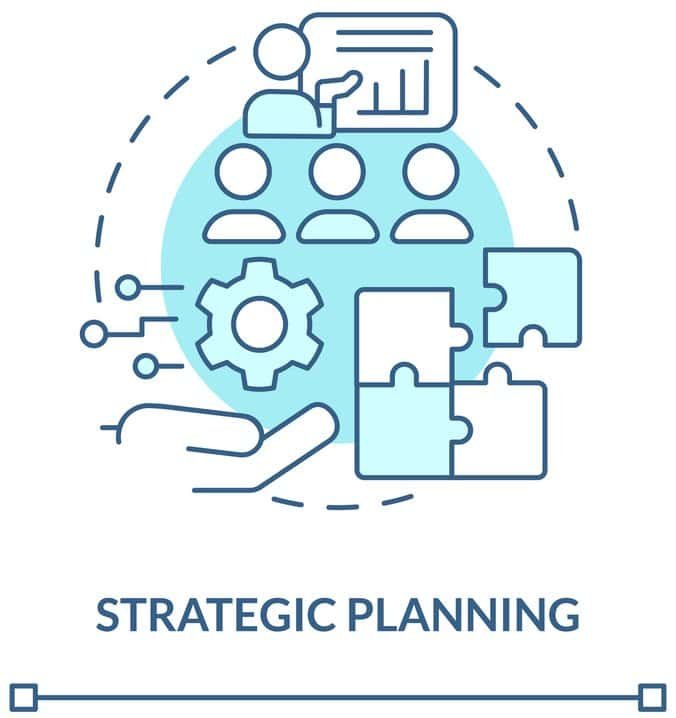
The moving company business model covers five key areas: marketing strategies to reach your target market, sales processes to convert leads into booked jobs, operations for managing day-to-day activities, and accounting to track revenue, expenses and profits. It also includes the legal side of your moving company, consisting of your business structure, license and permits, and insurance. We’ll dive into the details of each area to successfully launch and grow your moving company.
Create a Detailed Plan
Creating a detailed business plan is the first step when looking to start a moving company. This plan should outline your business model including your marketing, sales, operations, accounting, and the legal side of the business.
A detailed plan defines whether you’ll operate as a limited liability company (LLC), how to establish leads, and the equipment and supplies needed to start. A plan also covers how to price moving jobs, the services you offer, and how to organize leads. A well-thought-out plan acts as a roadmap, guiding your new business through the initial stages of launching your business.
Mistakes to Avoid When Starting a Moving Company
When launching a moving company, avoiding certain pitfalls leads to success. Some common mistakes include:
- Not creating a detailed business plan.
- Underestimating the amount of marketing needed.
- Skipping the steps to legally formalize your business.
- Not using technology to your advantage.
- Not using a CRM system.
In the sections below, we will explore what a CRM is and how it can be used to increase the amount of business you gain.
Choose a Business Name and Logo
Choosing the right business name and logo for your moving company is a critical step in establishing a brand identity that resonates with your target market. Your business name should be memorable, easy to spell, and reflect the professional services you offer. Use our moving company names list to spark creativity and find a name that aligns with your moving services and target audience.
The logo, on the other hand, should visually communicate your brand’s values and the nature of your moving services, making it instantly recognizable. Consider hiring a freelancer on Fiverr, an online marketplace for freelance services, to design your logo. Fiverr offers access to talented designers who can create a professional logo that accurately represents your moving business at an affordable price.
This approach ensures your moving company stands out with a unique identity that captures the attention of potential customers. Register for a free account on Fiverr to create your logo.
What is a CRM and how does it relate to starting a moving company?
A CRM, or Customer Relationship Management software, is a pivotal tool for anyone looking to start a moving company. It’s designed to manage your interactions with current and potential customers, streamline processes, and improve profitability.
For moving businesses, a CRM can schedule moving jobs, organize customer data, and aid in your marketing strategy. It’s particularly relevant for moving companies because it helps provide accurate estimates, accept invoices, and maintain communication with clients, ensuring smooth business operations.
Throughout this article, we will dive deeper within each section into how a CRM can be leveraged to build a successful moving business. For small business owners in the moving sector, adopting a CRM will lead to being highly competitive within the moving industry.
Build Your Marketing Strategy
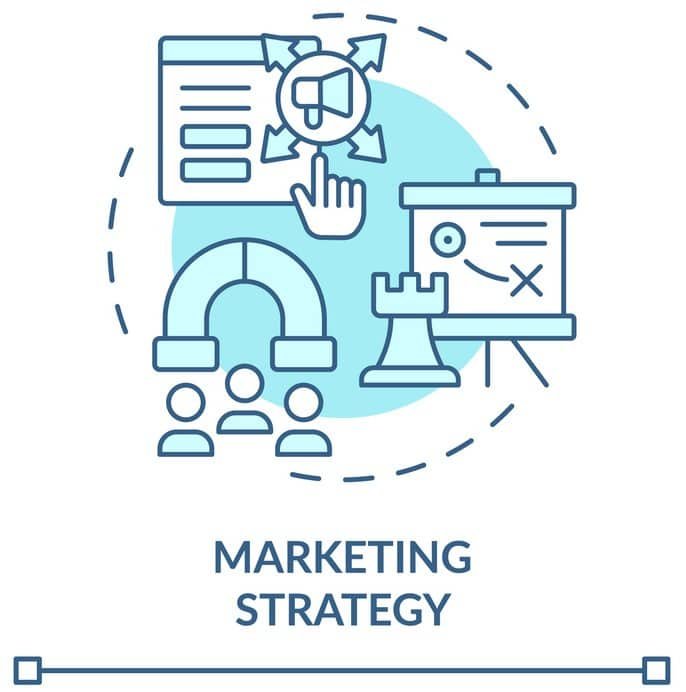
Writing a marketing plan for your moving company involves identifying your target market, such as families moving to a new home or businesses relocating offices. Utilize print marketing by distributing flyers and business cards to local services and neighborhoods.
Embrace social media platforms like Facebook, Yelp, and Nextdoor to engage with your local community and potential customers. Your website should be optimized for search engines such as Google to improve visibility in search results, making it easier for target customers to find you.
This strategic approach ensures your marketing strategy reaches a broad audience, attracting both local moves and long-distance moves. This sets the foundation for building a profitable moving business.
Target Market
Identifying your target market is critical in establishing a successful moving company. Your target market can range from individuals and families planning local moves to businesses requiring commercial relocation services.
Conduct market research to understand the specific needs of these groups, such as packing services for residential customers or specialized moving equipment for office furniture. Tailor your moving services and pricing structure to meet the demands of your identified target audience to help attract more customers.
For small business owners starting a moving company, focusing on a well-defined target market is the first step to developing a strong marketing strategy. Reaching your target marketing can be done through print marketing, social media, and a website.
Print Marketing
Print marketing remains a powerful tool to this day for moving companies aiming to establish a strong local presence. Business cards are essential for networking, allowing you to leave a physical reminder of your moving services with potential customers and local business contacts.
Flyers and door hangers can be distributed in neighborhoods to advertise your services by directly reaching your target audience. Yard signs offer visibility in the local community when placed strategically in high-traffic areas to showcase your brand.
These print materials should reflect your business’s branding, include contact information, and peak curiosity to encourage calls or visits to your website for more details.
Utilizing these print marketing strategies can significantly enhance your moving company’s recognition in the local market, contributing to the growth of your new business.
Take Your Business Online with Social Media
Taking your moving company online is beneficial for reaching your target market and expanding your customer base. Establish a strong presence on social media platforms like Facebook, where you can engage with the local community, share testimonials, and update followers on any current promotions.
Yelp and Google are essential for collecting customer reviews, which can significantly influence potential customers who are researching local movers. Positive reviews can boost your company’s visibility and credibility, making it easier for new customers to find you online.
Nextdoor, a neighborhood-focused platform, allows you to target local moves directly, reaching those in your immediate area most likely to require your services. These online platforms complement your marketing strategy, helping to enhance customer satisfaction and drive word-of-mouth referrals.
Build Your Website
For your moving company, creating a website is pivotal. There are two main paths: develop the website yourself using platforms like Squarespace or Wix or hire a professional developer.
When building your own website, using a platform such as Squarespace offers a user-friendly interface with customizable templates without the need to know how to code. On the other hand, hiring a website developer can save time and ensure a polished, professional online presence.
Whichever route you choose, a well-designed website is crucial for showcasing your moving services and establishing a successful marketing strategy.
Develop Your Own Website
Developing your own website for your moving company can be a strategic and cost-effective choice. This route offers direct control over your site’s design, content, and updates, allowing you to quickly adapt to the moving industry’s trends and customer feedback.
With numerous user-friendly website builders available, creating a professional-looking site without extensive technical knowledge has never been easier. This hands-on approach can significantly reduce startup costs, a vital consideration for new businesses.
In essence, building your own website empowers you to directly shape your moving company’s digital marketing, aligning it closely with your business plan and goals.
Hire a Website Developer
Hiring a website developer may be the best route for your moving company, especially if you’re aiming for a highly professional online presence from the start. A skilled developer can create a custom website tailored to your moving business’s specific needs by incorporating advanced features and functionalities that might be beyond the scope of DIY website builders.
This can significantly enhance your site’s user experience, improving engagement and conversion rates. A developer can also ensure that your site is optimized for search engines such as Google, Bing, and Yahoo, which is crucial for appearing in local business directories and search results.
While it may involve higher startup costs, the investment in a professionally developed website can pay dividends in attracting your target market and establishing your moving company as a leader in the moving industry.
As mentioned previously in the Choose a Business Name and Logo section, Fiverr is a place where you can hire skilled freelancers. Based on experience within the moving industry, we’ve found this pro freelancer at Fiverr works best in creating professional moving company websites. Register for a free account and become competitive within the market.
Setup Your Sales Process
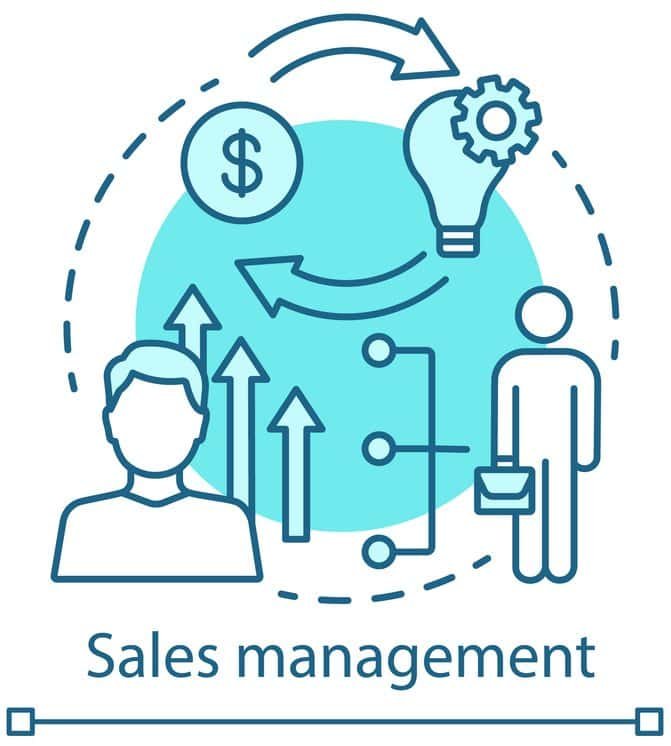
To set up your sales process, start by determining a competitive pricing structure for your moving services through market research and looking at your costs.
Selling your services involves clear communication of your value proposition and benefits, such as what is unique about your company. Establish referral partnerships with local businesses or real estate agents to tap into new markets.
Automate the follow-up process with potential and past clients through a CRM software to enhance customer satisfaction and encourage repeat business. These steps ensure a streamlined sales approach, driving growth for your moving business.
How To Price Your Moving Services
Understanding your market and competitors is essential to pricing your services. Begin with thorough market research to grasp what your target customers need and value in moving services.
Look at developed moving companies within your area and analyze their pricing structure. This aids in establishing competitive pricing and helps identify market opportunities that your moving business could fill, such as offering specialized services or flexible pricing options.
Remember, your pricing should not only cover your startup costs and everyday operations but also allow for profitability. It’s about finding the balance between being affordable to your target market and sustainable for your own moving company.
Additionally, consider implementing a pricing structure offering various service tiers, catering to a broader range of potential customers while maximizing revenue opportunities.
How To Sell Your Services
Differentiating your moving company from competitors is crucial to selling your moving services. Highlight your unique selling proposition—be it eco-friendly packing materials, specialized moving equipment, or exceptional customer service.
Speaking of which, never underestimate the power of good customer service. It retains customers and turns them into advocates for your business, amplifying word-of-mouth marketing. Employ basic sales techniques like understanding customer needs, offering tailored solutions, and following up promptly.
Ensure your pricing structure is transparent and provides value for the services offered. By focusing on these areas, your moving company can stand out in the moving industry, attract new customers, and quickly become profitable.
Generate Leads with Referral Partnerships
Establishing referral partnerships is a powerful way to generate leads for your moving company. Collaborating with real estate agents can connect you with individuals and families in the process of buying or selling homes that are likely to need moving services.
Partnering with U-Haul neighborhood dealers or other truck rental services offers a mutual referral opportunity, especially for customers who need full-service movers. Storage units and apartment complexes are also prime sources of referrals, as they regularly encounter tenants who are moving in or out.
Offering incentives, such as discounts or commissions, can motivate these partners to recommend your moving business to their clients. Such partnerships expand your moving company’s reach and build a network of trusted local services, enhancing your reputation and presence in the moving industry.
Automate the Follow-up Process for Leads
Automating the follow-up process for leads is a game-changer for moving companies looking to streamline their business operations and enhance customer satisfaction. By setting up automated SMS text messages or emails through a CRM software, your moving company can ensure timely communication with potential customers.
This technology allows for personalized follow-ups based on the customer’s previous interactions with your company, enhancing the customer experience and increasing the chances of converting leads into bookings.
Automation helps maintain a consistent line of communication without additional manual effort, freeing up time to focus on other aspects of running a successful moving business. Implementing such a system not only demonstrates professionalism but also keeps your moving services top of mind for potential customers.
The Operations of a Moving Company
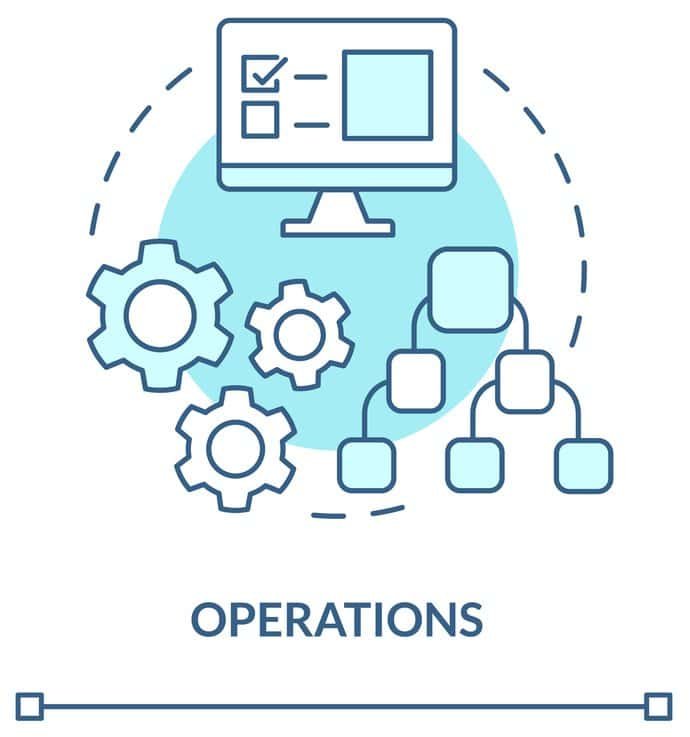
The operations of a moving company encompass a wide range of activities, all aimed at providing valuable moving services to customers. At the core, business operations involve the services to offer, equipment and supplies, managing employees, and scheduling jobs.
Interestingly, it’s also possible to start a moving company without a truck. Each aspect, from the business structure to the day-to-day operations, plays a vital role in establishing a well-organized moving business.
List of Services to Offer
When launching your moving company, offering a diverse range of moving services can significantly enhance your appeal to a wide audience and deliver on the needs of your target market. Essential services include residential moving, providing clients with a stress-free transition to their new homes.
Commercial moving services cater to businesses relocating offices or commercial spaces, requiring strategic planning and execution. Packing services are a valuable addition, offering customers convenience and peace of mind with professional packing of their belongings.
Specialty moving services can cater to unique items like pianos, antiques, or artwork, requiring special care and equipment. Including long-distance moves expands your reach beyond the local community, serving customers nationwide or across state lines.
By offering a wide range of services, your business can meet the needs of potential customers, setting the foundation for running a successful moving company.
Moving Equipment and Supplies
Starting a moving company requires essential equipment and supplies to ensure efficient and safe moving services. Key items include a reliable moving truck or fleet, durable dollies for heavy lifting, furniture pads and blankets for protection, and straps to secure items during transport.
Packing materials such as boxes, tape, bubble wrap, and wardrobe boxes allow for comprehensive packing services. Additionally, tools for furniture disassembly and reassembly will enhance your service quality. Investing in company uniforms creates a professional image, instills trust among potential customers, and promotes your brand.
Uniforms also contribute to team unity and can be used for marketing, featuring your company’s logo and contact information. Together, these equipment and supplies form the backbone of your moving business’s day-to-day operations, supporting the delivery of exceptional services to customers.
How to Start a Moving Company Without a Truck
Starting a moving company without a truck might seem challenging, but it’s entirely feasible with the right approach. Initially, you can leverage truck rental services, allowing flexibility and lower upfront startup costs. Partnering with rental agencies can also offer access to a variety of vehicles, ensuring you have the right truck for each job.
This eliminates the need for vehicle maintenance and high startup costs. Another strategy is to focus on packing services and smaller jobs that don’t require large vehicles, such as moving items within the same building or offering to load and unload rented trucks for DIY movers.
This approach allows you to build a client base and generate revenue without the immediate need for a moving truck. As your moving company grows, profits can be reinvested into purchasing your own truck, gradually expanding your moving services and capabilities in the moving industry.
Hire Employees
Hiring employees is a critical step in expanding your moving company. Look for individuals with physical strength, a strong work ethic, and excellent customer service skills. Hire friends or family or conduct thorough background checks to ensure trustworthiness.
Training is essential in safe lifting techniques, moving equipment handling, customer interaction, and packing services. Remember, your team represents your moving business; they are crucial to achieving customer satisfaction and building a successful company.
Investing in your staff through fair wages, benefits, and a positive work environment can significantly contribute to the growth and reputation of your moving company.
Scheduling Moving Jobs
Scheduling jobs is critical to running a well-organized moving company. Utilizing Customer Relationship Management (CRM) software can dramatically streamline this aspect of your business operations. A CRM helps you easily organize multiple jobs and ensures that you’re always on top of your schedule, allowing you to provide timely services.
This is key to enhancing customer satisfaction, as it shows respect for the customer’s time and minimizes the stress associated with moving. By consistently showing up on time and executing jobs efficiently, your moving company can earn satisfied customers who are likely to leave positive reviews on social platforms.
These reviews further strengthen your reputation in the moving industry, attracting more potential customers and reinforcing your status as a reliable source. Implementing a CRM system is a strategic move that leads to better service delivery and, ultimately, a thriving moving company.
Manage Your Accounting and Finances
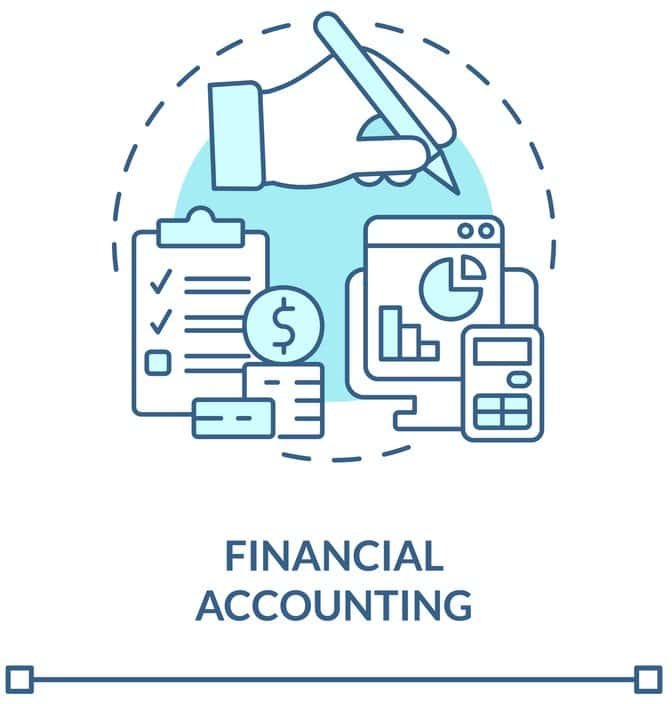
Managing your accounting and finances is a cornerstone in starting a moving service. Key steps include opening a dedicated business bank account to separate your personal assets from your business operations. Accurately generating estimates, quotes, and invoices ensures transparency with your target customers.
Consistent bookkeeping tracks financial health, guiding informed business decisions. For growth or initial setup, securing funding through a small business loan or other financing options can provide the necessary capital. Setting up the financial foundation supports long-term success.
Open a Business Bank Account
Opening a business bank account is a vital step for new moving businesses. It separates your personal assets from your company’s finances, enhancing financial processes and simplifying accounting procedures.
This separation is essential for small business owners to manage day-to-day operations, track startup costs, and handle moving service payments more efficiently. Additionally, a business bank account is necessary for establishing credibility with potential customers and commercial insurance providers.
It also facilitates the processing of employee payroll and adherence to legal and tax obligations. Choosing the right bank involves considering fees, services, and the convenience of access to funds. For moving companies, having a dedicated account supports business development and plays a key role in launching a well-managed business.
Estimates, Quotes, and Invoices
Estimates, quotes, and invoices are pivotal in the service industry, allowing moving companies to communicate pricing clearly and efficiently to their target customers. Utilizing a CRM system can streamline these processes, providing accuracy and consistency.
A CRM can automatically generate estimates based on moving services required, convert those estimates into quotes for customer approval, and finally, issue invoices upon job completion. This simplifies business operations for small business owners and enhances customer satisfaction by offering timely financial communication.
Adopting a CRM solution in your moving business ensures that all financial transactions are recorded and easily accessible. Most CRM softwares can easily integrate with accounting softwares.
Bookkeeping
Bookkeeping is a fundamental aspect of managing a successful moving company. Utilizing accounting software, such as QuickBooks, simplifies this crucial task. QuickBooks can automate many of the most basic financial processes, from tracking startup costs to managing employee payroll and packing material inventory.
It also provides valuable insights into your moving business’s financial health, allowing for better decision-making and business development strategies. For small business owners, QuickBooks offers a user-friendly interface that supports efficient business operations, ensuring accurate and up-to-date financial records. This level of financial organization is key to growing your new moving business.
Secure Funding if Needed
Securing funding for your moving company may be necessary if you plan to start by purchasing a company truck. Trucks represent a significant portion of the startup costs associated with launching a moving business.
However, if you start with something other than a company truck, the initial investment can be considerably lower. In such cases, you can leverage rental trucks or subcontract work to those who own trucks, significantly reducing your startup costs.
For those requiring funding, exploring options like small business loans, investors, or crowdfunding can provide the capital to cover the purchase of a truck and other essential moving equipment. Careful planning and budget management will help navigate the financial aspects of starting a moving company.
Establish the Legal Side of Your Moving Company

Establishing the legal groundwork is a foundational part of launching a successful moving company. This process involves several important steps, such as deciding on your business’s legal structure, which can range from a sole proprietorship to a limited liability company (LLC).
Obtain the necessary licenses and permits to legally operate your moving business, with requirements varying by state and the types of moving services offered. Secure business insurance to protect your business operations and personal assets.
Register for taxes, including obtaining an employer identification number (EIN) from the Internal Revenue Service (IRS). Together, these steps ensure that your moving company is fully compliant, safeguarded, and ready to launch.
Decide on Your Business's Legal Structure
Deciding on your moving company’s legal structure is a pivotal first step in the business formation process. Each option has its own set of implications for liability, taxes, and business operations. A sole proprietorship is the simplest form, offering full control but also placing your personal assets at risk.
A general partnership involves two or more people sharing profits, losses, and legal responsibilities, which can benefit small business owners looking to pool resources. However, like a sole proprietorship, partners can be personally liable for business debts.
A limited liability company (LLC) is often the best choice for many moving businesses, as it provides protection of personal assets from business debts and liabilities while offering flexibility in management and tax benefits.
Each business structure offers different advantages, and choosing the right one depends on your business plan, risk tolerance, and long-term goals for your moving company. Based on experience within the industry, we suggest forming an LLC through ZenBusiness.
Moving Company License and Permits
Obtaining the proper licenses and permits covers the basics for legally operating your moving company. The requirements vary by state and sometimes by city, so it’s crucial to research your specific area’s regulations. Generally, you’ll need a USDOT number and potentially a motor carrier license if you’re crossing state lines.
Local moves may only require state-level permits but always check with local authorities to be sure. Additionally, some areas might require a special moving company permit or a business license. Ensuring you have all necessary documentation and permits not only ensures you legally operate but also positions your business as a reliable source.
Prioritizing these legal requirements sets a solid foundation for your new business, helping to build trust and ensure smooth day-to-day operations.
Get Business Insurance
Securing business insurance is a smart step to take for any moving company looking to protect itself and its clients. Essential insurance coverage includes general liability insurance, which safeguards against property damage and bodily injury claims. Cargo insurance is also vital, as it covers the goods being transported, providing peace of mind for both you and your customers.
Additionally, if you start with your own truck, vehicle insurance is necessary to cover any potential accidents or damages. For small business owners starting a moving company, this important step helps lay the groundwork for succeeding in the competitive moving industry.
Register For Taxes
Obtaining an Employer Identification Number (EIN) from the Internal Revenue Service (IRS) is necessary to comply with tax laws. This number is required for reporting taxes and other documents to the IRS and possibly your state government.
Your business structure, whether a sole proprietorship, partnership, or limited liability company (LLC), will determine your tax obligations, including income tax, self-employment tax, and possibly sales tax and payroll taxes.
Proper registration ensures your moving business operates legally, enabling you to focus on increasing revenues. It’s a must-take step towards building a compliant moving company and safeguarding your personal assets. Join our free guide for a step-by-step action plan.
Frequently Asked Questions
What are the most important items to consider when starting a moving company?
When starting a moving company, prioritizing your business structure, marketing plan, sales processes, and operations is crucial. Effective accounting practices and establishing legal structures ensure compliance and financial health.
Utilizing a CRM tool streamlines customer interactions, day-to-day operations, and supports business development. This approach lays the foundation for being highly competitive within the moving industry.
How much does it cost to start a moving company?
Starting a moving company can vary in cost, primarily depending on whether you purchase a moving truck upfront. Without a truck, initial startup costs can be as low as a few thousand dollars covering equipment and supplies, insurance, business licensing, and setting up your legal structure.
Opting for a truck significantly increases the expense, potentially requiring $20,000 to $150,000 or more. However, leasing options or starting without a truck can keep initial costs manageable, offering a flexible path to growing a moving business.
How profitable is a moving company?
A moving company can be quite profitable, with potential margins varying widely based on the moving services offered, pricing structure, and operational efficiency. Successful companies can see healthy profits due to the constant demand for moving services, especially if they manage to carve out a niche in the moving industry.
Effective business operations, including cost management, customer satisfaction, and marketing strategies, play critical roles in maximizing profitability. Starting a moving company can lead to a profit-making business venture with the right approach.
